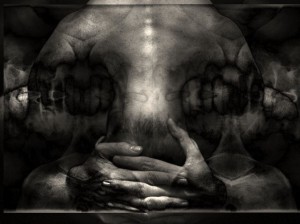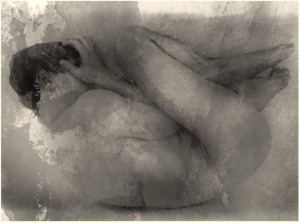Hearing the Healers
“Healing” is an abstract word, but the experiences we have as healers are concrete and specific. Here are the voices of three people engaged in the healing process: a military chaplain, a hospice volunteer, and a social worker experiencing her own grief. – Editors.
Homesick Warriors
by Capt. Sarah D. Schechter, U.S. Air Force Chaplain Corps
I am a military chaplain in the United States Air Force. For the past two and a half years, I have been stationed at Lackland Air Force Base in San Antonio, Texas. Chaplains are the only people in the military who provide “privileged communication,” absolute confidentiality, and therefore are the first ones people turn to for help. In the course of a week, I could see 80 people in addition to having other obligations.
Many of these visits are made by basic trainees, and revolve around the issue of homesickness. Although our society often discusses the fear and trauma that some combat soldiers experience, we don’t often contemplate the common experience of homesickness that virtually all newly enlisted men and women face. Young civilians are suddenly placed into a new culture and environment, one that is purposely abrasive, one that “breaks you down in order to build you up.” Trainees must endure long periods of isolation from the civilian world; it is tough. And not everyone will make it through.
The first two weeks are the hardest, before trainees have adjusted to their sobering new reality: trainees go from being “Rainbows,” nicknamed for the colorful civilian clothes in which they arrive at basic training, to having to use formal reporting statements at the beginning of every contact with their superiors. If they make a mistake, they are yelled at; repeated mistakes result in the team losing points and suffering further demoralization. Trainees usually don’t anticipate how much they will miss home and how isolated they will feel in those days.
When a trainee is struggling with acute homesickness, I usually don’t hear first from the trainee—the call I receive is from the training instructor, requesting a chaplain. The trainee and I meet: “Talk to me. How are things going?” I ask. He takes a deep sigh. The tears well up in his eyes. “Chaplain…I don’t know if I can make it,” he says, or “I just miss my parents so much,” or “I just miss my girlfriend.”
A common fear among homesick trainees is that their parents will not be alive when they graduate, even though they say their parents were healthy when they left. If they had an argument before leaving home, they are deeply remorseful and they wish their parting words reflected their real feelings of love and appreciation. It hurts them that they cannot just call and say, “I’m sorry.” In a sense, basic training is a very long Yom Kippur. Trainees reflect on their lives; they are remorseful and promise to be better people. Trainees will often tell me that for the first time in their lives they appreciate the sacrifices their parents made to raise them.
I run a Shabbat program that many trainees of all faiths attend. One of their favorite parts of the service is when we read “A Prayer for Home”: “Far from home and those I love, I find my thoughts turning to them with affectionate longing. O God, You who are with my loved ones who are distant even as You are with me here, You hear their prayers even as You hear mine. Bless us and keep us united in spirit until we meet again” (p. 433, Sidur Tefilot L’chayaeli Tzava Artzot Habrit). When I read it, it is clear that the trainees are moved by the words, that this prayer comforts them and speaks al libam, to their homesick hearts.
Spiritual Care for the Dying
by David Carmine
My name is Dave and I am a spiritual care partner at the Jewish Home of San Francisco. It is my role there to ease the way for residents who are facing imminent death. I began this life-changing work a little more than four and one half years ago. I had suffered a stroke and was forced into retirement. After an appropriate amount of “feeling sorry for myself” time had elapsed, I decided it was important to get off my butt. I found my way as a volunteer with Kol Haneshama: Jewish End of Life Care, sponsored by the Bay Area Jewish Healing Center and the Jewish Home of San Francisco.
As a care partner, I spend time with residents at the Jewish Home. The first resident I spent time with was Esther, a loud, pushy, bawdy, and tough broad from New York City. We were a perfect match. I adored her instantly, and I miss her to this day. We talked about books, the news of the day and a little about her life. She was afraid of dying, but preferred not to discuss spiritual matters. She really just wanted and needed a friend.
One day, months into our friendship, I arrived for a meeting with Esther at the home’s café and suddenly found myself confronted with the first hard decision of my partnership. Esther was sitting at a table, head in her hands, sobbing uncontrollably. I was aware that she had met with her doctors that morning, and I was fearful the news had been drastic. I sat down, took her hand, pressed it to my lips, and sat silently.
“I saw my doctors this morning, Dave.”
“I know.”
“David, please tell me the truth. Am I dying?”
I knew almost at once that I could not lie to this lady. I had too much respect for Esther to give her platitudes, sweet sayings, or promises of a bright future.
“Yes, my dear friend, you are.”
“Thank you. At last someone is telling me the truth.”
We sat there, holding hands as she cried. I have never felt closer to another human being than I did at that moment. Esther slowly ceased her sobbing and smiled up at me.
“Can we please have a cup of coffee now?”
“Of course,” I replied. “How about a nice muffin with it?”
I have visited with many residents since Esther, and if my count is correct, about twenty-two of them have passed on. Each of them approached death in his or her own way. Carol knew it was a matter of a short time before she would die, but she did not want to talk—she just wanted a companion. Carol loved classical music and it played in her room at all times. I would come in, kiss her hand, and sit down. Carol would turn toward me, smile, and blow me a kiss. For one half hour, we would be like a long-married couple, joined by our minds, never touching.
Sam was a man who railed against death and tried to push it away by denying it. He was a former merchant marine and had been a hard-working, hard-living man all his life. Now in his late nineties and dealing with dementia, he chose to think of the past and not dwell on what we both knew was coming soon. My favorite line of Sam’s is, and I quote: “I’m going to tell you a story and if I’ve told it to you before, I don’t care. You see, every time for me is the first time.”
About three years ago, I was matched with someone who was expected to die quickly, but to our surprise our friendship lasted three wonderful and fulfilling years. Lynn was in her mid-eighties and had been suffering from mental health challenges all her life. At this stage, she had advanced dementia and anxiety problems. The anxiety took the form of paranoia and the fear of being touched unless she made the first move. Lynn felt deep guilt and thought she had done something wrong to make herself sick.
One day when she was feeling especially bad and was expressing her anxieties, I instinctively put my arm around her back to hold and soothe her. “You really screwed up now, Dave!” I thought to myself. However, instead of becoming anxious, Lynn smiled up at me, said thank you, put her head on my chest, and cried. After that incident, Lynn and I held hands throughout every visit and she began to remember my name. Lynn has taught me many things in the course of our friendship that will stay with me for the rest of my life. I have learned unconditional love and trust. I have learned how a little lady could face insurmountable odds and certain death with both grace and dignity. When Lynn would ask me why she couldn’t remember things, I would respond, “Well, you are about 120 years old and we keep finding all those empty vodka bottles in your room.”
She would laugh, smack my arm, and tell me what a bad boy I was. Lynn did not believe in God, so we had no spiritual conversations. Yet somehow in my mind I think, for whatever His reasons, it was God who matched us.
I may never know why I chose the Kol Haneshama program off the computer page that fateful day, but I’d like to think I was guided there by a higher power. Both of my parents and my brothers died without my being able to help them. I have lost two partners without a chance to nurse them. Of the many things this program has given me, one is most certainly a new purpose in the later years of my life. As I used to tell my “Momaleh,” as I called Lynn, she was my chance to give what I hadn’t been able to give my loved ones. She was my second chance.
The Proper Jewish Mourning for a Queer Ex-Wife
Karen Erlichman
On June 2, 2007, my ex-wife, Dixon, died. We met more than twenty years ago, when I was a graduate student, and got married almost two years later, before queer marriage was all the rage. It was hardly a traditional Jewish wedding. Our love was unapologetic, innocent, and defiant. Shortly thereafter, we left Philly and relocated to San Francisco, a quintessential exodus for two young dykes.
Although we had vowed not to become one of those couples to break up after moving away, it became our destiny, though our sense of being family to one another endured after the breakup. Both Dixon and I quickly found new partners and our social circles were overlapping but distinctly distant.
Many lesbian, gay, bisexual, and transgender people experience periods (or lifetimes) of estrangement from family, so creating chosen family is a familiar and precious way of life. My new partner, Jana, and I have now been together for sixteen years, and our chosen family includes former wives and a few ex-lovers. Not long ago, Dixon and I finally had begun to bridge the distance and reconnect anew as friends when she was diagnosed with Stage IV lymphoma of the bone marrow.
Her body was literally ravaging itself from the inside out, and the next ten months were a series of gruesome encounters with the health-care industry in a rapid downhill slide. I felt completely unprepared for the severity of her suffering or my own bereft helplessness. And despite my desire to be useful, I had no voice or vote; I was the ex-wife.
When the day of her death arrived, Dixon’s external body had also been transmogrified. The hospital bed consumed the entire living room, and the five of us cocooned around her: me, the ex-wife; her current wife; and three close friends. It was God and serendipity that allowed me to be there when she died, because I happened to be leading a spiritual retreat that day about a mile from their house and asked permission to stop by on my way home. Dixon was in a coma, bald, with bulging tumors on her head, neck, and shoulders. Oozing, crusty abscesses covered her breasts, and the sounds of her agonal breathing were haunting and noisy: gasping, labored breathing, with strange vocalizations and moaning. She was a butch woman who was fastidious and fussy about her personal hygiene; to see her in this state, so exposed and helpless, felt almost disrespectful.
We held her hands, sang to her, talked, and joked in a surreal haze with one another until the hospice nurse finally arrived to administer more pain medication. I had arrived at 3:30 that afternoon, and she died about five hours later. It was not the first death I’d ever witnessed, but it was unequivocally the most horrific one.
According to Jewish tradition, one is obligated to observe mourning rituals for the following relatives: father, mother, sister, brother, son, daughter, and spouse. All of these roles and relationships have particular and unique meanings in the context of queer relationships. Who constitutes family for lesbian, gay, bisexual, transgender, and queer Jews? Connection and loyalty to family of origin are complicated at best for most exiled queer Jews, and many of us choose to create a new definition of family. Where does my chosen family fit in with the list of qualifications for Jewish mourning rituals?
For those who have lost count of the friends and lovers who have died from AIDS, breast cancer, loneliness, or suicide, we search for liturgy and community that will speak to our grief. Jewish rituals for death and mourning felt strangely absent in the days and weeks following Dixon’s death, leaving me in a suspended emotional and spiritual state. I spent several weeks unable to breathe comfortably, gasping for the freedom to express my grief through the sacred Jewish rituals that have been so reverently observed for generations.
Aninut. Tahara. Kriyah. Kaddish. Shiva. Shloshim. Yahrzeit. These words still sit in my mouth and I turn them over and over with my tongue, tuck them deep in the back of my cheeks. They are my secrets.
Six weeks after Dixon died, a memorial celebration was held at a Berkeley restaurant where she and her wife had dined weekly for more than a decade. Our friend Ali, who’d also been there on the night Dixon died, was the “emcee” for the celebration, and he’d called me a few nights before to ask if I thought it would be okay for him to lead the Mourner’s Kaddish in his opening remarks. I felt relieved and triumphant at the possibility of a minyan of Jews standing visibly in this group, chanting the Kaddish together.
I was not invited to speak among the long list of people in the celebration’s “program.” An altar was set up in the private dining room, with candles, mementos, and photos from almost every stage of Dixon’s life, but there was no trace of our relationship or any other previous partner, even though a handful of women she’d loved fiercely were present. I’d been rendered invisible even as a mourner.
On the day of the memorial celebration, I’d dressed defiantly in a low-cut black cocktail dress, with a sparkly white scarf tossed around my shoulders and sassy black heels. Dixon would have relished my rebellious fashion statement. If I couldn’t have kriyah, the traditional rending of garments, then dammit, I was going to work that dress.
Jana and I sat in the back row, and I clutched my grandmother’s pink linen handkerchief as people approached the microphone to share memories of Dixon. When Ali called out for people to stand and recite the Kaddish, I quickly put on my kipah and stood as a proud Jew, honoring her Yiddishe neshamah, the Jewish yearnings in her soul, and how we’d loved each other.
I promised myself I would pray the Mourner’s Kaddish for the first year whenever I was in a synagogue. Fortunately, in my own congregation, our minhag is rather loose and flexible, so I have felt the freedom and support to claim my place in the community as a mourner. Nearly two years after Dixon’s death, I am still marking the passage of time and looking for rituals to sanctify my grief. I continue to feel haunted by this stark question: What is the proper Jewish way to mourn a queer ex-wife?
![[the current issue of ZEEK]](../../image/2/100/0/5/uploads/leftistethicistgraphic-52842c6a.png)
- 5000 Pages of Zeek
- Founded in 2001, Zeek was the first Jewish online magazine, and we have over 5000 pages online to prove it, all available free of charge. Read more in the Archive.
More articles by
Capt. Sarah D. SchechterDavid CarmineKaren Lee Erlichman
More articles in
Faith and Practice
- To-Do List for the Social Justice Movement: Cultivate Compassion, Emphasize Connections & Mourn Losses (Don’t Just Celebrate Triumphs)
- Inside the Looking Glass: Writing My Way Through Two Very Different Jewish Journeys
- What Is Mine? Finding Humbleness, Not Entitlement, in Shmita
- Engaging With the Days of Awe: A Personal Writing Ritual in Five Questions
- The Internet Confessional Goes to the Goats




